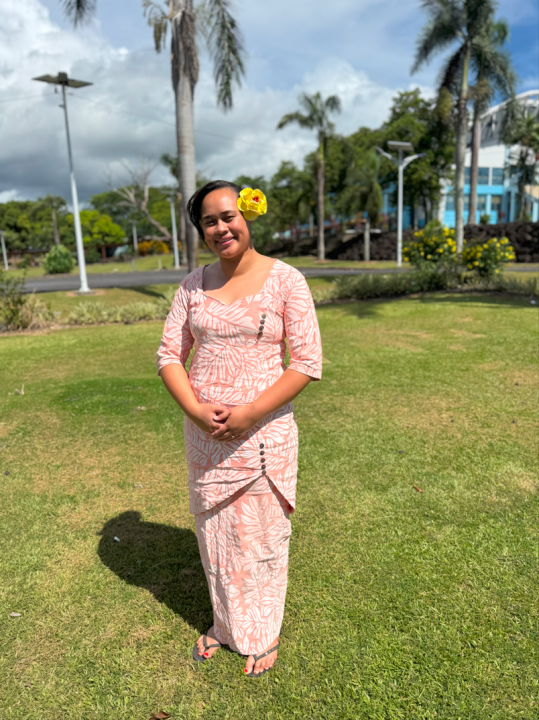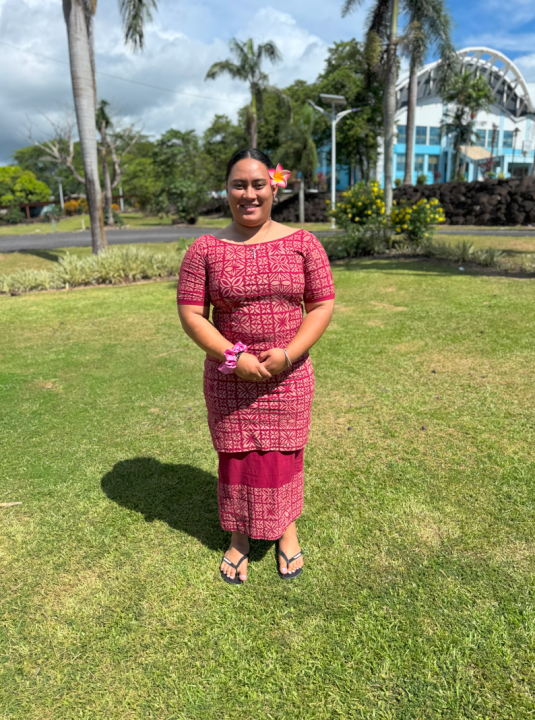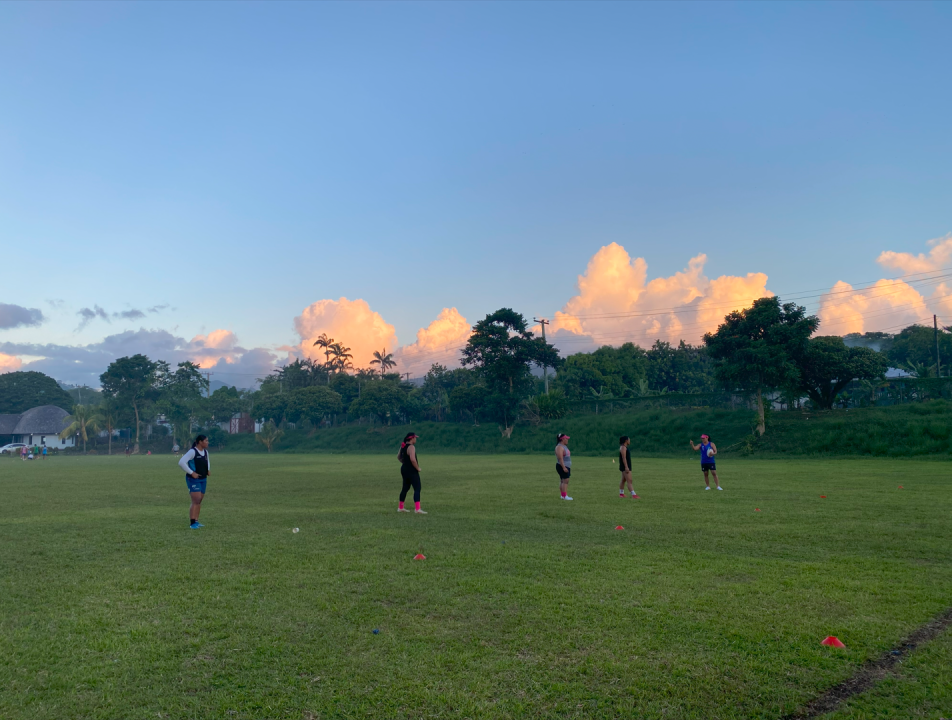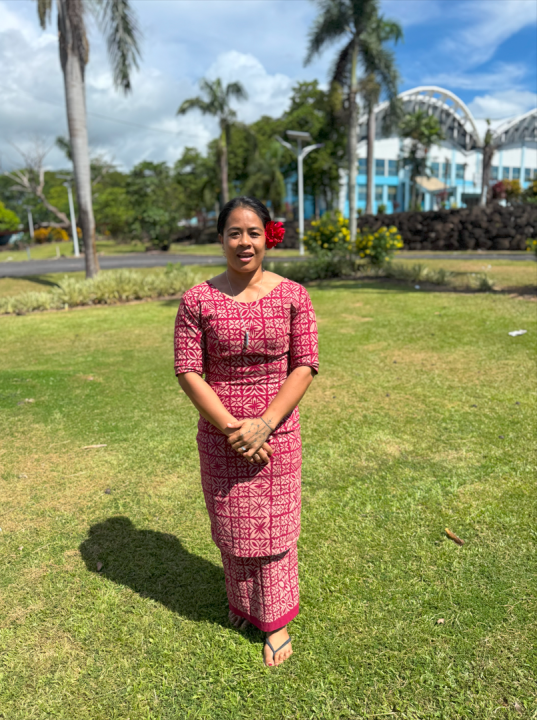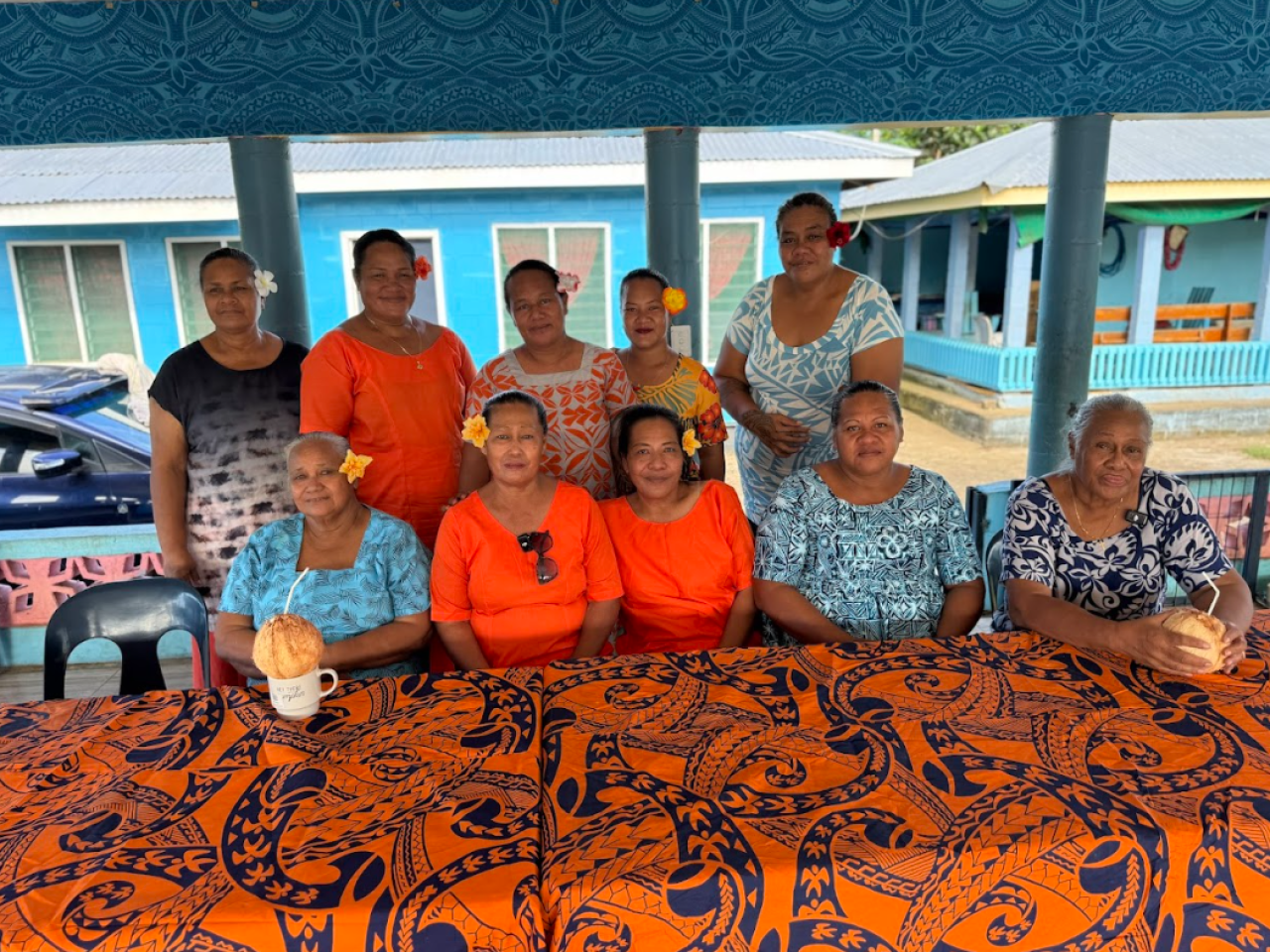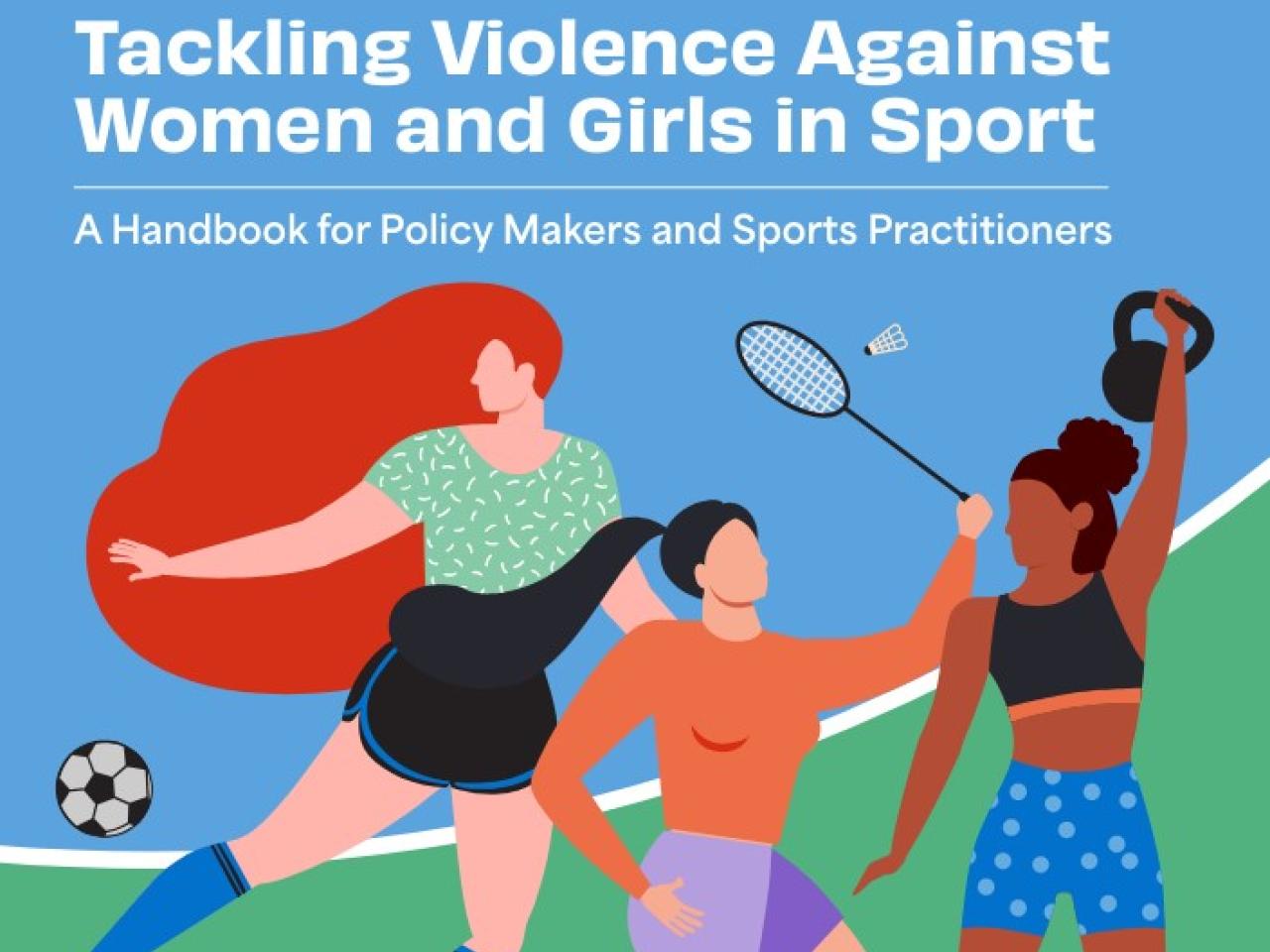Changing the game: The women using sport to fight gender-based violence in Samoa
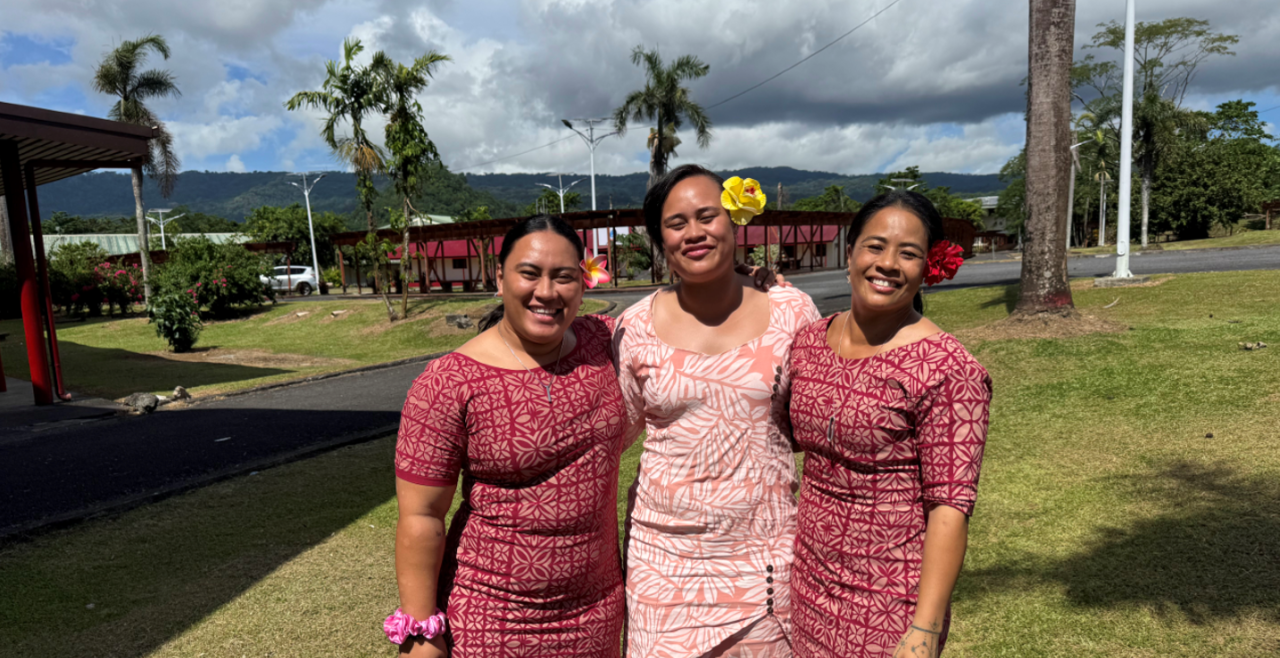
APIA, Samoa - When Atitoafaiga Tau-Ioapo, 30, discovered that one of her rugby league teammates was missing, she felt frightened. “Her mom reached out to me and said we haven’t seen her since last night. It’s now 8 p.m. the next day, and we haven’t seen her.”
It was getting dark and emotions were high, but Ms. Tau-Ioapo knew exactly what to do. “We rallied everyone and just got in our cars and started driving around looking for her, making phone calls.”
Eventually, Ms. Tau-Ioapo found her teammate sheltering at a local pastor’s house. She’d gone there after a violent incident, too afraid to go home.
Ms. Tau-Ioapo drew on her psychological first aid (PFA) training immediately.
“Our first point was to make sure that she was physically okay and that she was well enough or wanting to speak to one of us... Then we took her to the police station, doing due process [in reporting the assault].”
Ms. Tau-Ioapo had been playing rugby league since 2019, but she says it was the psychological first aid training she did with Apelu Sports that equipped her with the skills she needed to help her friend. Apelu Sports is Samoa’s only women’s sports NGO and a partner of Spotlight Initiative.
Ms. Tau-Ioapo says the training also helped her preserve her own safety and wellbeing – a must in sport, where more than 20 per cent of female athletes report experiencing sexual violence at least once as a child, according to UNESCO.
“With all the workshops that I’ve been to, I’ve learned how to be confident, how to speak for myself, how to address and identify areas or settings where it might not be safe,” she says.
Speaking up, speaking out
Fellow rugby teammate Anasis Afi’a, 26, shares a similar experience. “Spotlight helped me a lot to become a champion for my sisters, for my family, my community, my teammates and my co-workers.”
She says she used her Spotlight Initiative-supported training to advocate for the inclusion of pregnant adolescent girls in her church community. Women and girls who become pregnant outside of marriage can face social stigma and exclusion. Ms. Afi’a wanted that to change, so she took it up with the village pastor – also her father.
“My dad is a hard man to talk to. His mind is from the old days… But when I had a talk with him, he could really understand my point. And from there he could say, ‘It doesn’t matter [if someone is married or not]. This is where we come together to stand up for these young females, give them support, give them a little bit of help to cope and transition to the other level of life they are in.’ Afterwards, I felt strong — I felt empowered to speak up more.”
Creating change off the field
Gabrielle Fuatino Apelu is the Director and Founder of Apelu Sports and a firm believer in the power of sports to change social norms.
“In the Pacific and Samoa specifically, there are only three things that get the whole nation moving: one is our culture, one is our religion and the third is sports,” says Ms. Apelu. “Sports can move mountains. I love that creative way of getting [violence prevention] messaging across.”
Ms. Apelu made history as the Pacific's first female manager for the National Rugby League but left her role in 2019 to found Apelu Sports.
“First and foremost, I’m a woman. When you live and experience life in your own country, in the context you're in, you realize life could be better, happier, more positive, if we took some steps to change a few things.”
“All our programmes are done with a gender lens. A lot of our programming is now around family life education, gender budgeting, psychosocial first aid … The same girls and perpetrators are part of the sports sector, as supporters, players, coaches or administrators. Everyone is part of the sports sector.”
“Before Spotlight Initiative, there were a lot of national and international interventions that addressed violence against women and girls. But none was as far-reaching, as impactful, as Spotlight Initiative was and continues to be.”
Apelu Sports has trained 300 athletes and sports administrators in gender-based violence prevention since 2019 with support from Spotlight Initiative.
Ms. Apleu says the Initiative has also improved her ability to mentor players and identify and respond when something is wrong.
For example, she was able to support a player who was being groomed online.
“My psychological first aid training immediately kicked in. I offered her a safe space. She didn’t want to go home, so she stayed at my house. I called her teammates at 1 a.m. and I thank Spotlight Initiative, because when that call for help went out, they all turned up. The very next day, we went to the police. They found the perpetrator and that [abuse] ended.”
Ms. Apleu hopes that her work will help make life better for the next generation of Samoans – on and off the field.
“I have two children, a son and daughter. I want them to be able to experience life safe from harm… I want them to grow up in a Samoa that’s healthy, happy and thriving.”
By Anne Fullerton

